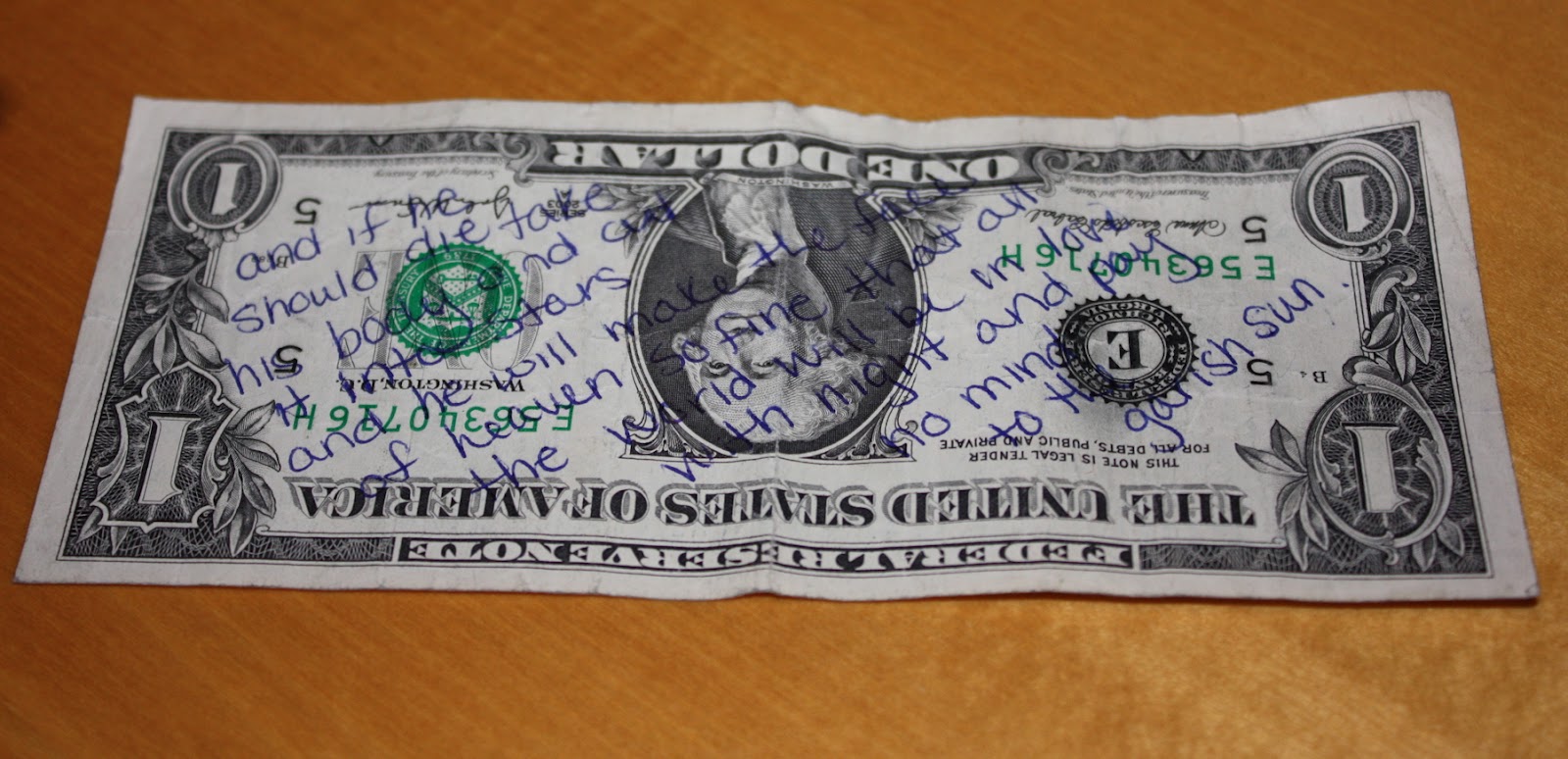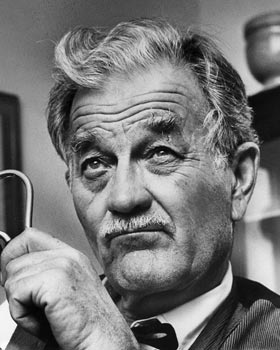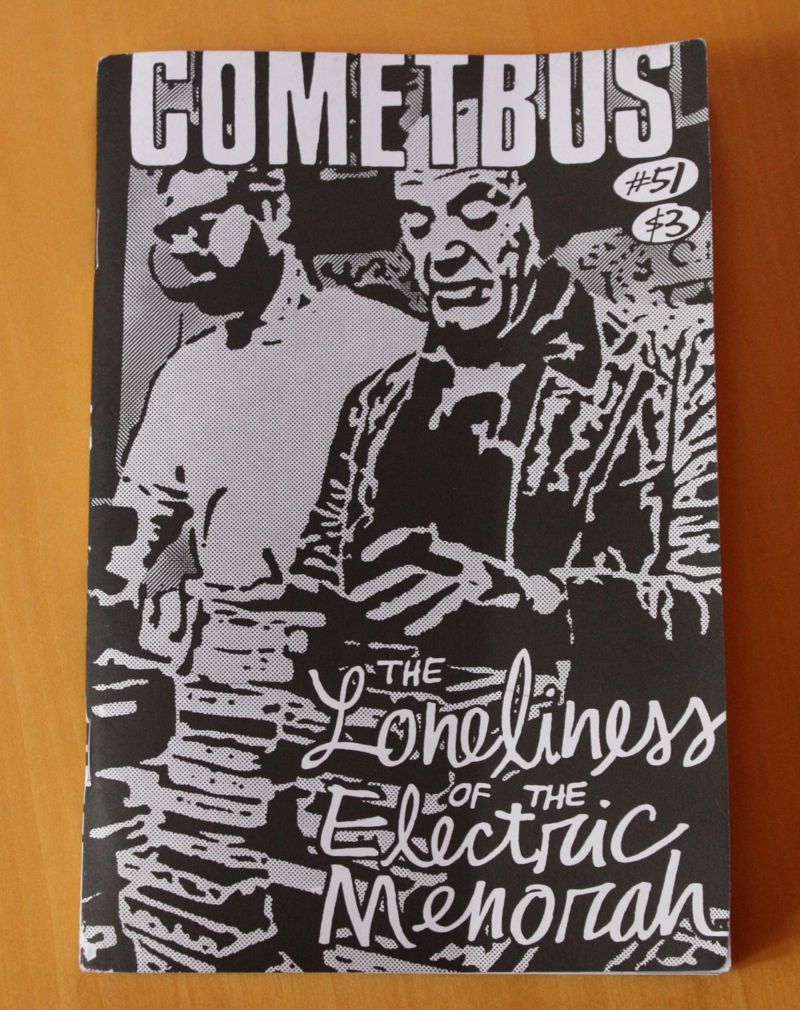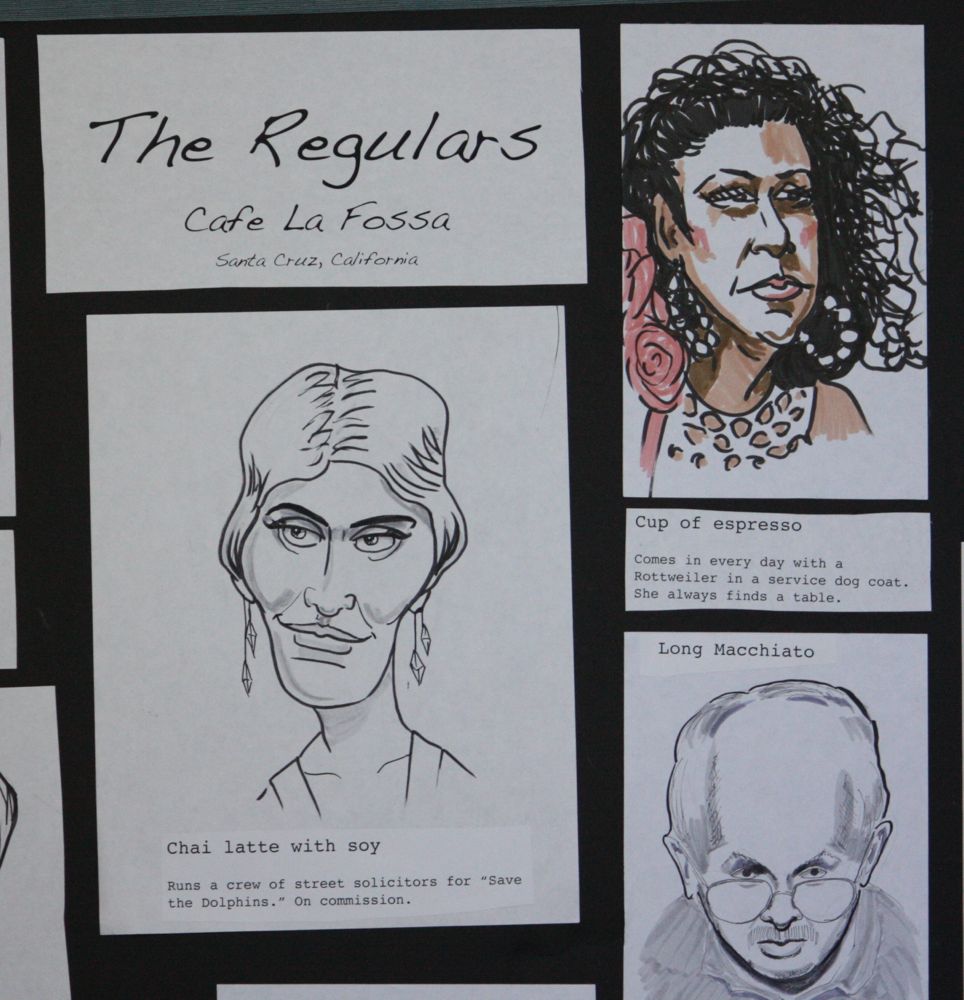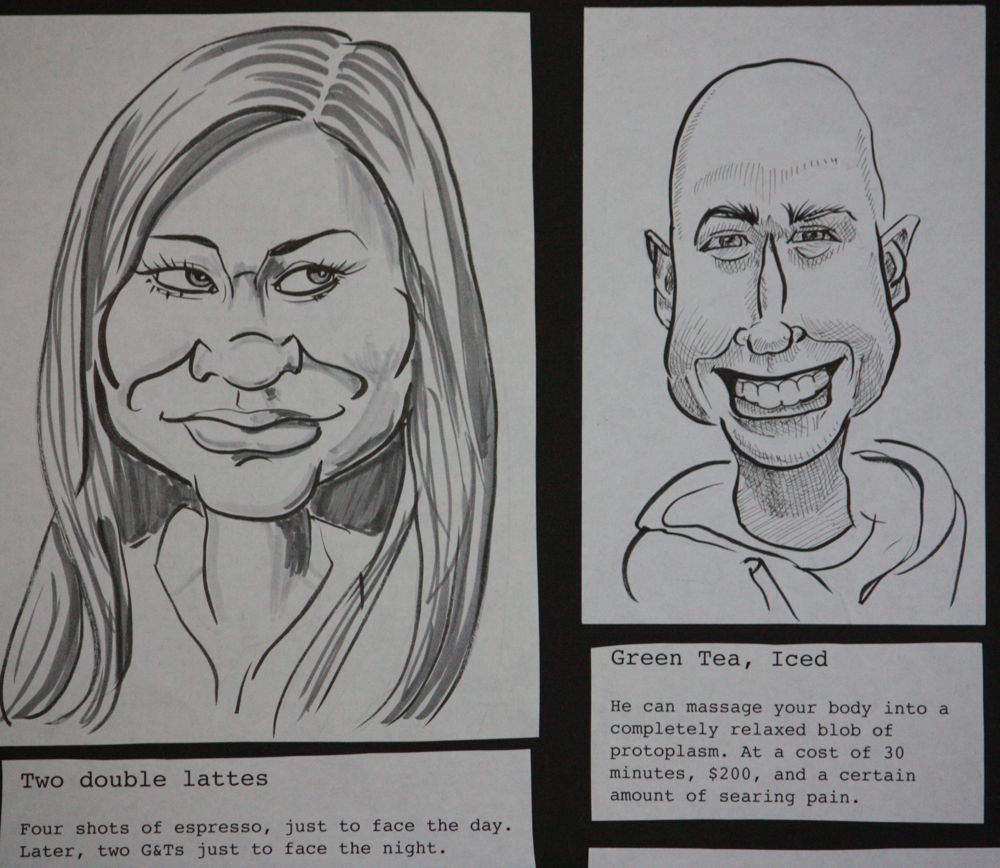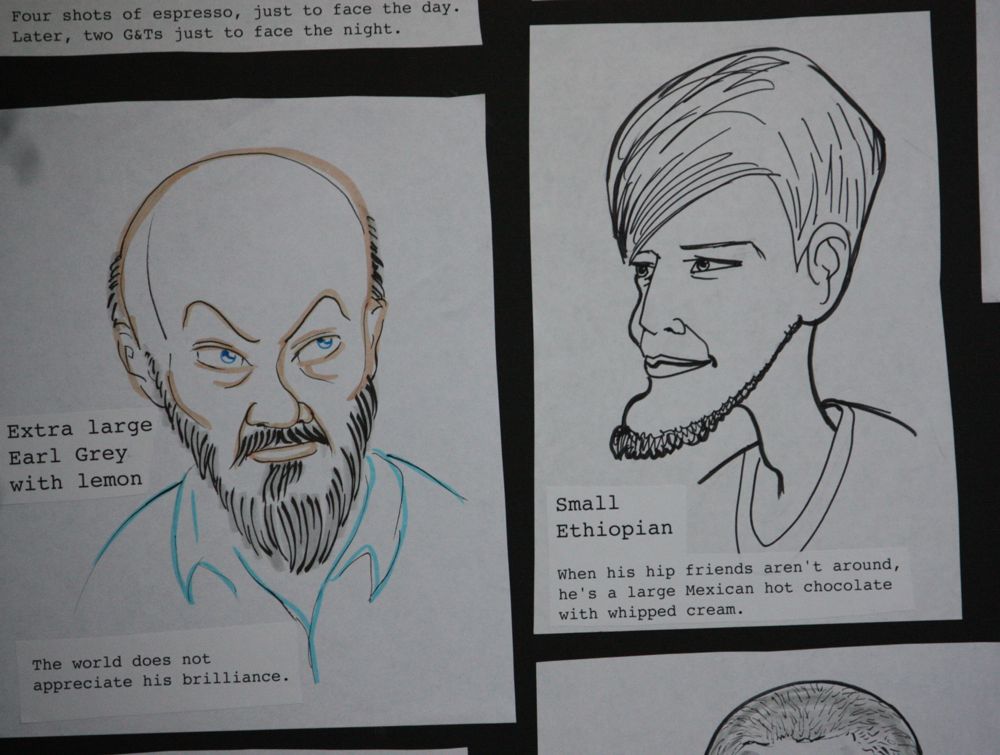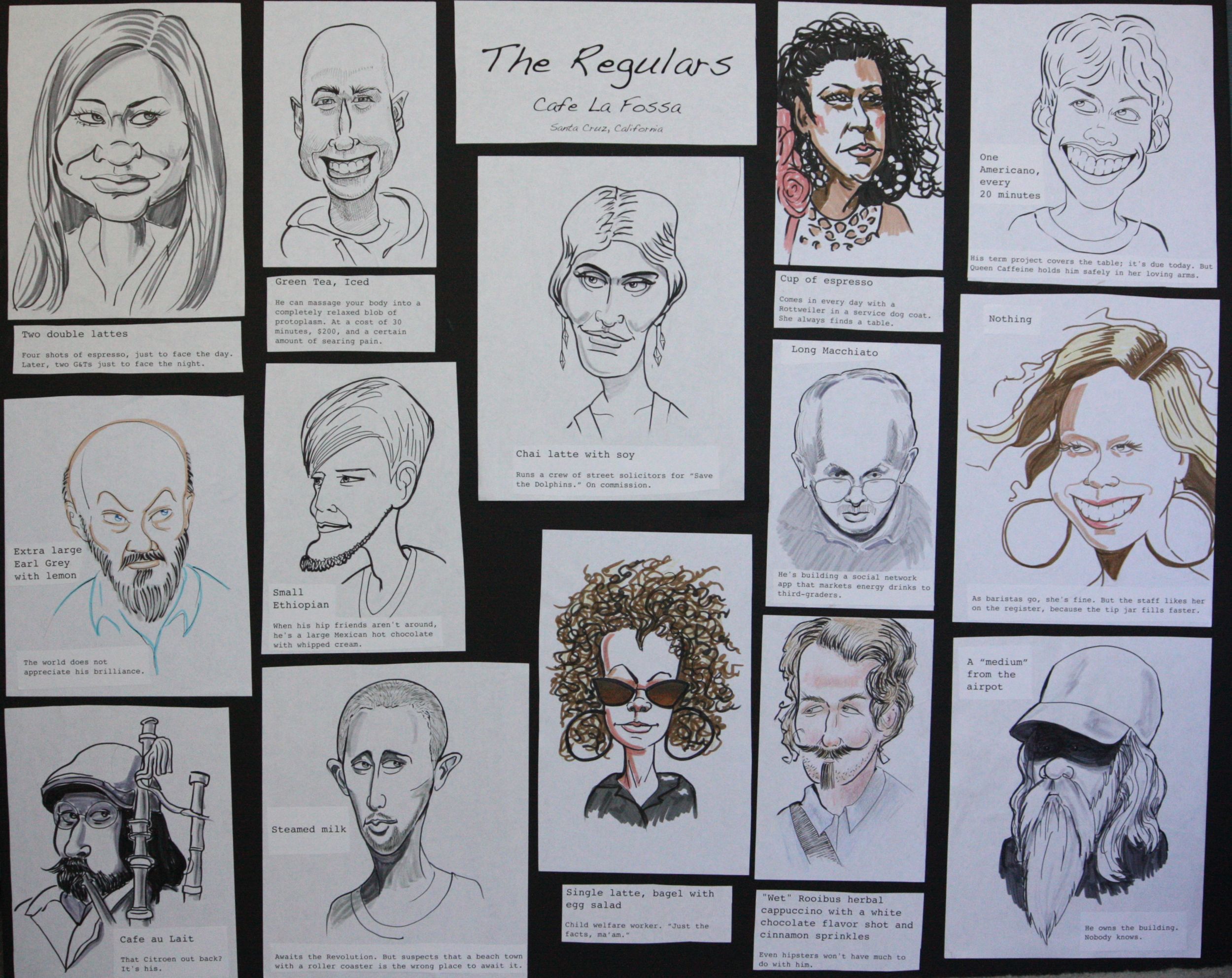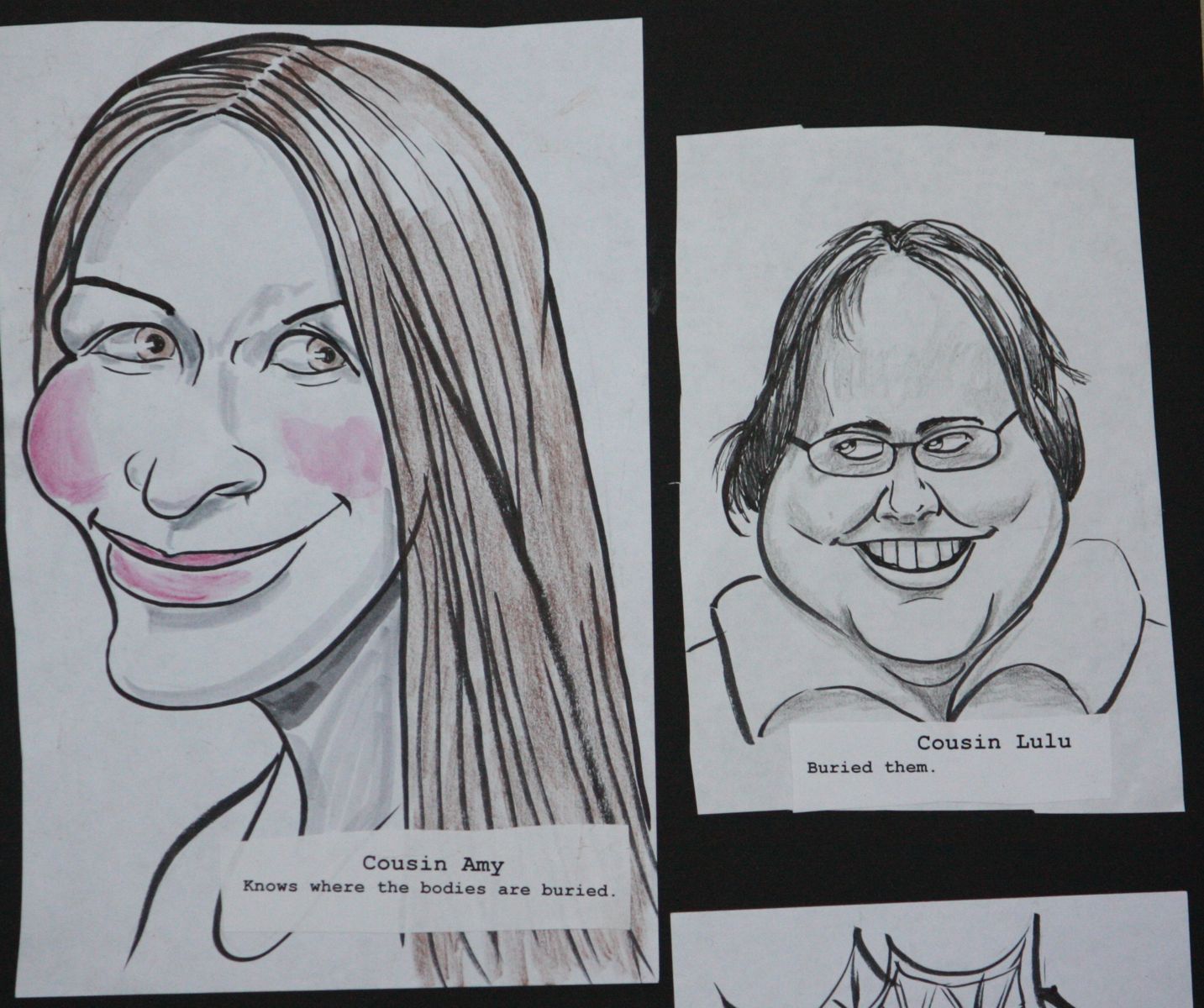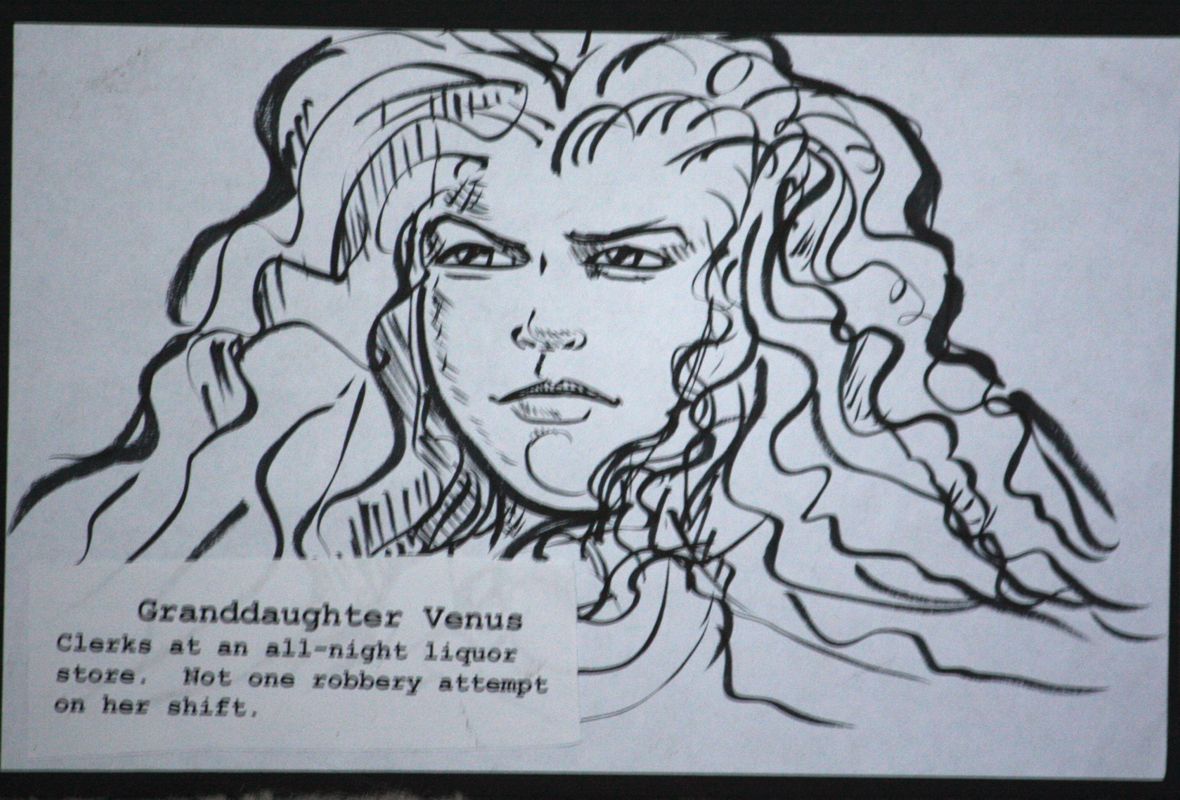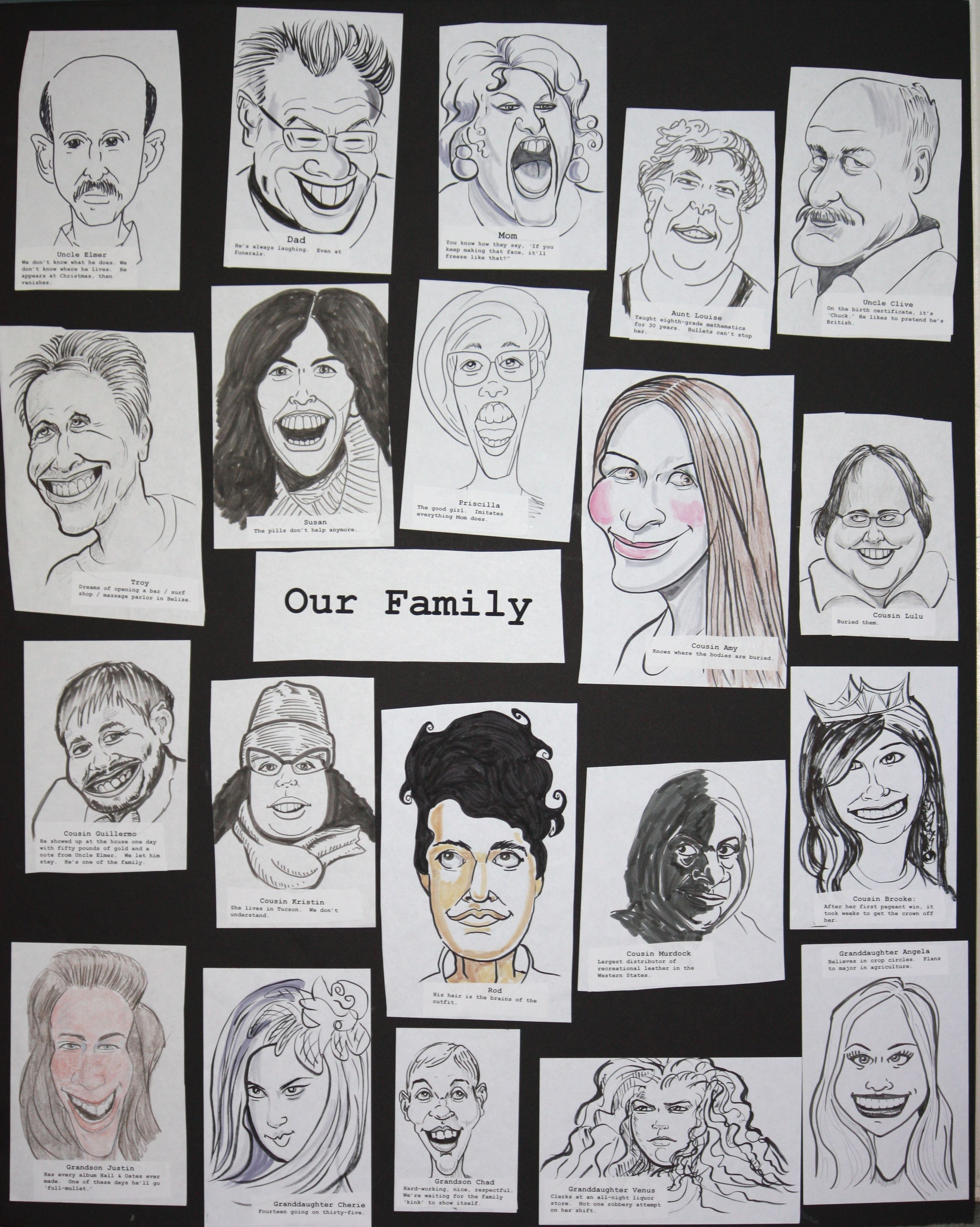How does a man of substance dress in Santa Cruz? You have several ensemble choices. But my favorite is a good pair of leather shoes, clean denims, an aloha shirt of floral pattern, and a pair of wraparound sunglasses. Add a briefcase, and you’re an entrepreneur.
So was I dressed, minus briefcase, as I walked into the Green Vapors vape shop on Cedar Street. And I was received with deference by the sales clerk, a pale young man with the All-Seeing Eye of Ra tattooed across his Adams Apple. In Technicolor.
Damn. Outdressed.
Not long ago there were no vape shops in the Santa Cruz area; now there are three, with names like Green Vapors, Beyond Vape, and E-Smokey Treats. Two of them opened just this past summer. Vaping (vay-ping) is all the rage these days.
For those of you living in ignorance – as myself, three days ago – vaping is the realm of the electronic cigarette, or e-cigarette: a way of delivering nicotine vapor into a smoker’s mouth without tobacco, or even combustion. A e-cigarette is just a portable electric vaporizer in the form of a cigarette: load with a nicotine-bearing liquid, turn it on, and suck the vapor. You get the buzz without smoke or smell. In theory, it’s healthier.
And since you’re not smoking – you’re inhaling a heated vapor, nothing more – you can suck on an e-butt in places that bar “real” cigarettes. Most of these devices don’t even look like cigarettes anymore: they resemble pocket flashlights or metal-bodied marking pens. They’re referred to as vape pens, and by other names.
At Green Vapors I was shown a mind-boggling selection of vape hardware, and an equally mind-boggling array of vape liquids: all different strengths of nicotine, and hundreds of different flavors. Yes, you get flavors. Chocolate. Maple. Floral. Carmel popcorn. Whatever you want. It’s candy in your mouth with no calories.
“Some people buy it (liquids) with no nicotine at all,” the clerk explained. “They just want the taste. We get a lot of people on diets.”
“So, who exactly is vaping,” I asked. “Mostly kids?”
“We get all kinds of people,” he said. “And we don’t sell to anyone under eighteen.”
“To me, eighteen is a kid,” I had to say.
He smiled faintly. “Once in awhile we get an old guy who just wants to quit smoking.” Touche, thought the old guy. Though I don’t smoke.
I dropped in on Green Vapors for one reason: because houses are blowing up in Santa Cruz. And in a weird, indirect way, vaping is responsible.
In the past three weeks, two houses have blown up while their occupants attempted to make hash oil. Hash oil is a sort of marijuana concentrate; you throw a bunch of marijuana into butane, a highly combustible fuel used in camp stoves and barbecues. When the butane evaporates, it leaves a heavy, waxy residue heavy in THC, the chemical in marijuana that gets you high.
People call this concentrate hash oil, “dabs,” “honey oil,” or whatever the flavor of the month is. If it’s made with the butane process (there are other ways, but butane’s easiest and cheapest), it’s often called BHO.
Evaporated butane turns into a heavy gas that flows along the floor until it finds an ignition source; a pilot light in the next room, in one case. In another — well, somebody lit a cigarette. Boom. Serious damage to the house, and life-threatening burns to all involved.
Experienced drug makers know all this, and take precautions. These were amateurs. Hash oil has been around forever; it’s the strongest possible marijuana high, but difficult to smoke. You need a bong, a blowtorch, and a titanium nail. I’m not kidding; and I won’t go into details. Suffice to say: you can’t smoke it on the dance floor.
Or you couldn’t; until somebody figured out how to smoke it in e-cigarettes. Probably several somebodies. It was one of those discoveries that was just itching to happen. See: “The Oil Game: How E-Cigarettes Have Become Stoners’ New Best Friend.”
So hash oil became very, very popular. It’s a huge high; and now you can have it anywhere, without telltale smoke or smell, and without that bloody blowtorch. Stoner entrepreneurs were quick to perfect e-cigs and vape pens that can vaporize the waxy hash oil without clogging up. Some enthusiasts assemble their own out of e-cigarette parts that they know will do the job. See: “Butane Hash Oil, Vaporizer Pens, and a Cheaper Option: E-Cigarettes.”
Right now, hash oil goes for fifty bucks a gram at least; and yet it’s cost-effective. A tiny, tiny bit contains as much THC as the average joint. On the face of it, the BHO process for making hash oil is simple and easy; so a lot of young men would like a piece of that action. But too often the action explodes in their faces.
Exploding houses are now a nationwide phenomenon, through primarily in states like California where medical marijuana is legal and there’s a lot of pot around. Because you don’t even need the prime bud to make oil; waste trimmings from somebody’s grow will apparently do fine.
The local cops are not saying a word about e-cigarettes and BHO; in the papers they’re quoted as saying that BHO-makers are simply preserving marijuana till next season, as Granny canned fruits and vegetables for the winter. But you don’t need to “can” pot in that way. It keeps fine for months in an air-tight container. Don’t ask me how I know this.
All I can say: if you see the young men next door bring home a batch of butane gas tanks, it may not be a barbecue they’re planning. Or there may be a barbecue – but not one that was planned. See “How to Make Hash Oil, Explode Your House, and Blow Off Your Hand in Three Easy Steps.”
Back at Green Vapors, I took a good look at the stock; but there was no way for me to tell which of the devices worked with hash oil, and which only worked with flavored nicotine juice. Maybe the owners of Green Vapors know; or maybe they don’t. Maybe they just stock whatever sells best and don’t think too hard about it.
I’m reluctant to believe in coincidences: three vape shops open up in town; and in short order, for the first time ever, two houses blow up from BHO manufacture. Is there direct cause and effect here? Most probably, no. Are the two phenomenon related? Most probably, yes.
And two blasted houses are just the tip of the iceberg; the bulk of it, beneath the water, is all the guys who figured out how to make BHO safely. Or have been lucky… so far.
The human race is brilliant at unintended consequences. Go back to 1969, when computer scientists were making a first stab at building the computer network that would some day become the Internet. What would those trail-blazing techies have said if you’d told them that their work would someday create a thriving online gambling industry in Costa Rica? Or become the world’s most efficient system for delivering pornography?
What would they say? Probably something alone the lines of, “That’s not quite what we had in mind.”
I’m sure that’s true. But there are those who say that, early on, porn traffic drove the growth of the Internet. I can’t help but think that BHO is fueling this sudden burst of interest in vape shops and e-cigarettes. Time will certainly tell.
I thanked the young clerk for his assistance. I’d made it clear I wasn’t there to buy, and he’d still been very helpful. As I said, a majestic Hawaiian shirt brings cred in this town.
“But what does the “green” in “Green Vapors” signify,” I asked him finally.
He shrugged and said, “That name has never made sense to me.”
I wonder what sense it was supposed to make.

